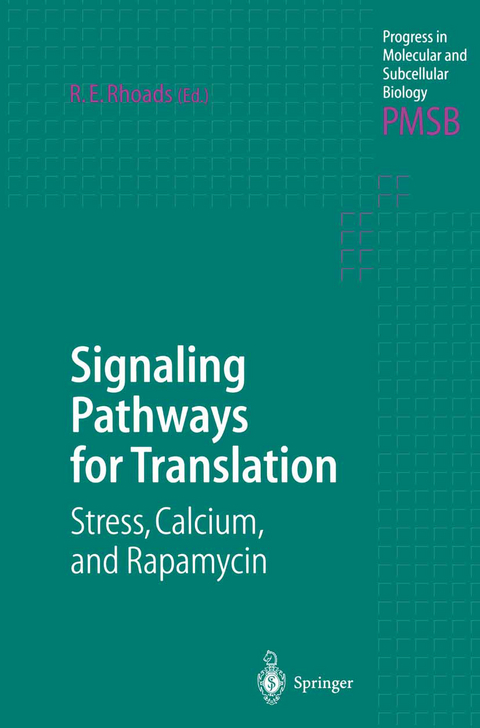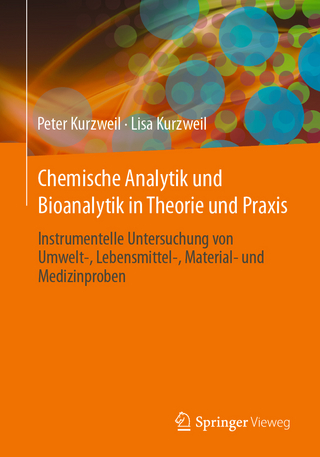
Signaling Pathways for Translation
Stress, Calcium, and Rapamycin
Seiten
2010
|
1. Softcover reprint of hardcover 1st ed. 2001
Springer Berlin (Verlag)
978-3-642-07505-6 (ISBN)
Springer Berlin (Verlag)
978-3-642-07505-6 (ISBN)
A diversity of stressful conditions cause rapid and severe inhibition of protein synthesis in eukaryotic ceIls, in some cases resulting in cell death by apopto sis (programmed cell death). Apoptosis has come to be recognised as an impor tant physiological process in the regulation of growth, development and differentiation. Until recently, relatively little attention had been paid to the changes in protein synthesis during the various phases of apoptosis. The arti des in the present volume are by major contributors to our understanding of signaling pathways that result in the inhibition of protein synthesis. These authors trace the downstream consequences of such stress conditions as virus infection, heat shock, nutrient starvation, release of intracellular calcium ions, and treatment with the immunosuppressant rapamycin. Understanding the mechanisms by which the biosynthesis of pro teins is regulated is important for several reasons. Pro tein synthesis consumes a major portion of the cellular ATP that is generated. Therefore, small changes in pro tein synthesis can have great consequences for cellular energy metabolism. Translation is also a major site for control of gene expression, since messenger RNAs differ widely in translational efficiency, and changes to the protein syn thesis machinery can differentially affect recruitment of individual mRNAs.
The Regulation of eIF4F During Cell Growth and Cell Death.- Regulation of the Activity of Eukaryotic Initiation Factors in Stressed Cells.- Initiation Factor eIF2? Phosphorylation in Stress Responses and Apoptosis.- Elongation Factor-2 Phosphorylation and the Regulation of Protein Synthesis by Calcium.- Phosphorylation of Mammalian eIF4E by Mnk1 and Mnk2: Tantalizing Prospects for a Role in Translation.- Control of Translation by the Target of Rapamycin Proteins.
| Erscheint lt. Verlag | 15.12.2010 |
|---|---|
| Reihe/Serie | Progress in Molecular and Subcellular Biology |
| Zusatzinfo | X, 178 p. |
| Verlagsort | Berlin |
| Sprache | englisch |
| Maße | 155 x 235 mm |
| Gewicht | 293 g |
| Themenwelt | Naturwissenschaften ► Biologie ► Biochemie |
| Naturwissenschaften ► Biologie ► Mikrobiologie / Immunologie | |
| Naturwissenschaften ► Biologie ► Zellbiologie | |
| Schlagworte | Apoptose • Apoptosis • Calcium • Calcium / Kalzium • Cell • cell death • cellular stress • elongation factors • Elongationsfaktoren • Endoplasmatisches Reticulum • phosphorylation • Protein • proteins • Proteinsynthese • Protein synthesis • Rapamycin • Regulation • Ribosomen • Ribosomes • synthesis • Translation • Zelltod |
| ISBN-10 | 3-642-07505-3 / 3642075053 |
| ISBN-13 | 978-3-642-07505-6 / 9783642075056 |
| Zustand | Neuware |
| Haben Sie eine Frage zum Produkt? |
Mehr entdecken
aus dem Bereich
aus dem Bereich
Buch | Softcover (2024)
Springer Vieweg (Verlag)
37,99 €


